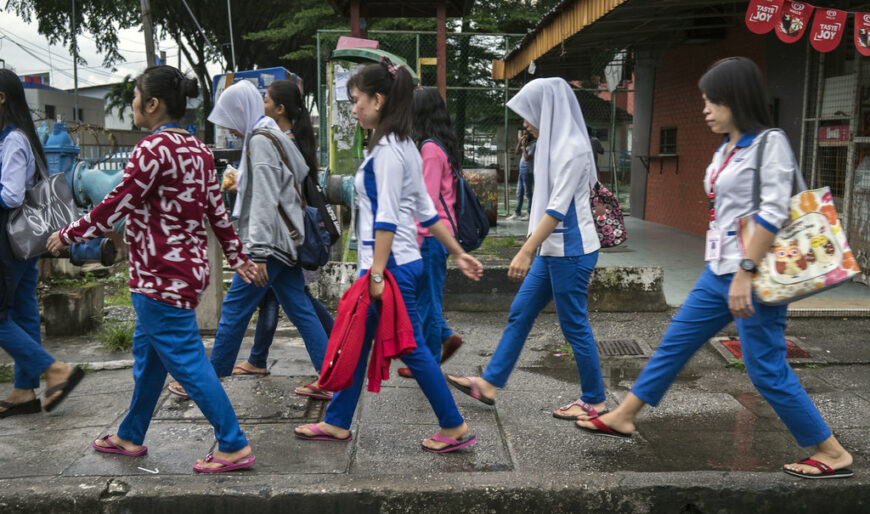
Dyson accused of a litany of labour abuses at it’s major supplier in Malaysia, ATA IMS. https://www.ier.org.uk/news/workers-take-up-claims-against-dyson-over-supply-chain-abuses/
18 Feb 2022| News

14 workers workers who made products and components for Dyson are taking legal action against the company, accusing it of a litany of labour abuses at a supplier in Malaysia.
The workers were employed at ATA Industrial, part of a major electronics manufacturer ATA IMS in Johor Bahru in Malaysia. ATA IMS was the largest component supplier to Dyson, making cordless vacuum cleaners and purifier fans for the household appliance multinational.
Between 2019 and 2021, Andy Hall, an independent labour rights activist in South East Asia, received a series of complaints from whistleblowers about forced labour conditions, squalid and overcrowded worker accommodation and reports of exploitation at ATA Industrial and contacted Dyson to log these complaints.
After further allegations in early 2021, an investigation was launched by US Customs and Border Protection. In June last year, when a report about conditions at ATA appeared in a UK national newspaper, Dyson denied the claims, arguing that the report “false and defamatory” and subject to a legal complaint. Following the report, ATA sought to identify the whistleblowers, some of whom had their mobile phones seized.
In addition, one of the workers told Channel 4 News he was tortured by local police after concerns about unlawful working conditions in the factory were first raised in 2019. Dhan Kumar Limbu said:
“When I screamed in pain, he stood on my knees, then hit me on the soles of my feet with a [rubber] pipe. He would stop and then start beating again. I felt so scared.”
Representing the workers, Oliver Holland (Leigh Day Solicitors) told Channel 4 News:
“Our clients allege that they work under conditions of forced labour. They lived in unsanitary and crowded accommodation, and they lived under the constant threat of punishment and persecution by the factory management if they didn’t adhere to what they wanted them to do.”
In November last year, following the completion of Dyson’s independent audit carried out by Elevate, the company finally terminated its contract with ATA Industrial. The report had identified major forced labour issues at ATA – including excessive working hours, the non-repayment of recruitment fees and the employment of workers without valid visas.
However, Mr Limbu is now one of 14 ATA workers who are preparing to bring a claim against Dyson in the UK over allegations that the company failed in its duty of care and to ensure the welfare of workers in its supply chain. Dyson denies that they failed to act when concerns were raised.
Dyson’s billionaire chairman and founder, Sir James Dyson, took the controversial decision to move its manufacturing base from the UK to Malaysia in 2002, with the loss of around 800 UK jobs. Dyson also has plants in Singapore, China and in the Philippines.
After the recent Channel Four documentary on the Dyson allegations, a number of trade unions and trade union federations made statements. Unite international director Simon Dubbins said:
“Unite joins the international labour movement in demanding Dyson ensures that human and labour rights abuses do not occur in any part of the company’s supply chain. Independent trade unions must also be allowed across the company and its supply chains so workers’ rights are protected and consumers can be confident they are not buying products that are made at the misery of others.”
N. Gopal Kishnam, secretary of IndustriALL Malaysia said:
“The National Action Plan on Forced Labour must be implemented immediately to end all kinds of abuse. We call on the Malaysian government to thoroughly investigate the complaint and take action in accordance with the laws.”
Atle Høie, General Secretary of IndustriALL stated:
“This case at Dyson shows that poorly constructed and executed audits are used to present a clean bill of health. Like at Dyson, we have seen many problematic audit cases in the supply chain that don’t reflect the reality. A credible audit includes workers’ voices.
Dyson must ensure fundamental workers’ rights according to the international standards in its supply chain. The best way to avoid exploitation is to ensure that workers, including migrant workers, can exercise their right to organize and collective bargaining to improve wages and working conditions.”
Meanwhile, Aruna Kashyap of Human Rights Watch, also pointed out the limitations of the social audits industry, saying:
“More auditing firms and their clients should publicly acknowledge the limitations of social audits and certifications. Audits and certifications alone are little guarantee that products are free of forced labor and other abuses. Transparency around audits is long overdue and urgently needs more attention.”
The Channel 4 News Report on the Dyson case can be seen here.